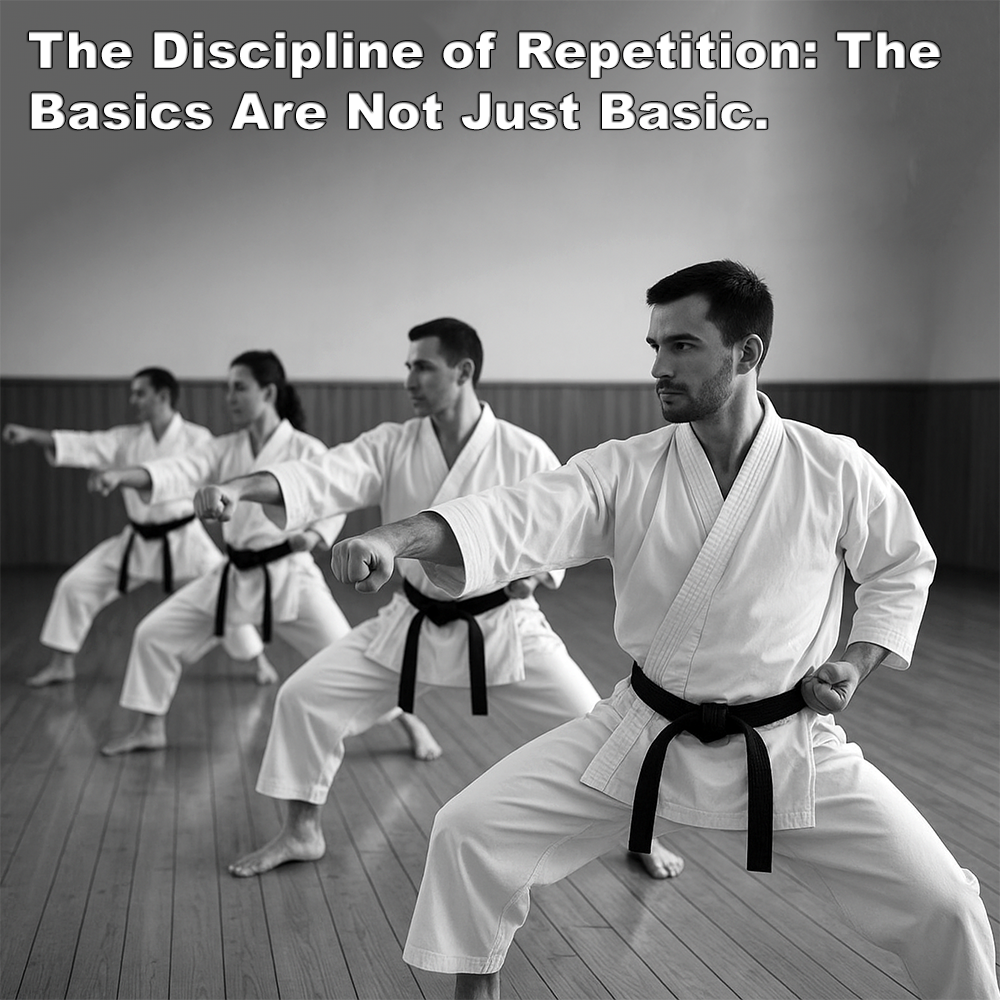
(Approx 1 minute 40 second read)
I’m sure everyone has heard this sentence before: “The most advanced things you can do are the basics, consistently.”
.
The more we practice, the less conscious thought goes into our movements. They become automatic, almost like retraining the flinch response, but for karate.
.
You can learn all the technical skills you want. You can study every theory and understand concepts down to the core. But what’s the point if you don’t know what to do with it?
.
Knowledge without application has little value. Theory assumes an outcome, while practice allows you to test the theory and see if it holds true. Learning isn’t just about memorization or practicing by rote. It becomes far more interesting when you can apply it to real-life situations.
.
Improvement in karate comes through repetitive practice of the basics and study at every opportunity. Yet today, society often finds repetition boring or stifling. How many times have you heard: “I’m not learning anything new”?
.
The discipline of repetition is at the heart of karate. But repetition isn’t just about going through the motions hundreds of times. It’s about understanding what the movement can do, not simply copying the technique.
.
Of course, repetition only has value if what you’re repeating is correct in the first place. Practicing the wrong thing hundreds of times doesn’t build skill, it only reinforces bad habits. I’ve written before about examples such as step-kumite, if these are drilled as ‘basics’ but with flawed understanding, then all that practice leads you further away from karate’s true purpose.
.
If you don’t see that a simple ‘block’ can also be something else because of its shape and mechanics, then all you’ll ever have is a block. What happens when you try to block in the way you’ve rehearsed, but the attack changes in an instant?
.
Funakoshi Gichin said: “Beginners must master low stance and posture. Natural body positions are for the advanced.” Even after countless repetitions, if you don’t grasp the deeper purpose of a movement, it will remain only ‘basic’.
.
True basics, however, are never shallow, they open the way to adaptation and depth of understanding.
.
So yes, practice your basics constantly. Just remember, they are not simply basic. The point of repetition is to make them instinctive, so that when needed most, the movement can adapt and change without conscious thought.
.
.
Written by Adam Carter – Shuri Dojo
